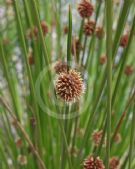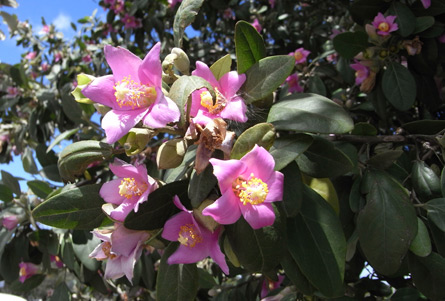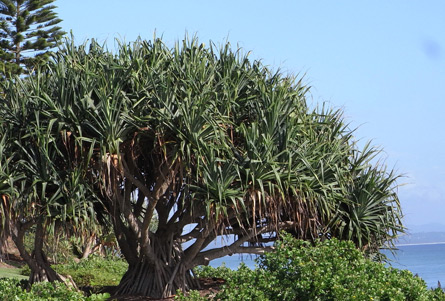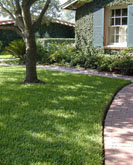coastal
getting coastal style
QUICK TIPS:
1. Create protection from strong, salt winds
2. Use found objects as decoration
3. Retain existing vegetation
4. Select salt tolerant plants
5. Mass plant grasses
6. Crown lift tree canopies
The challenges of salt, strong winds and sandy soils leave their mark on the coastal style garden.
Shelter is the focus. Screens - of plants or landscape materials such as brush - cut salt-laden winds. Existing vegetation is retained for added protection and to help bind the soil and minimise erosion.
Weathered driftwood, flotsam and jetsam, thick sisal rope and other nautical found objects are used as sculptural elements. Paths can be made of timber sleepers to hold back sand or with gravel infill - like a beach track over dunes.
Hammocks, daybeds and outdoor showers add to the coastal garden's casual sense of its place by the sea. Colours are sun-bleached blues, greys and whites; or bright, fun colours are used - where they're protected from fading - for contrast with the washed out tones of seaside plants.
Plants are located according to their salt wind tolerance. Front-line salt tolerant plants withstand the direct force of the prevailing conditions without any protection. Second-line plants tolerate the salty air and soils but with protection from the force of the strongest winds behind the first-line plants or some other barrier.
Typically these plants have adapted to strong, drying winds and quick-draining sandy soils with small, grey or hairy leaves. Heath-like shrubs with a compact, wind-pruned habit lend themselves to structured, geometric planting for a contemporary look while grasses are mass planted for a looser, windswept feel. Plants with glossier foliage and bright flowers lend a more beach-side resort style.
The need to build up shelter is balanced against the need to maintain visual connection to the ocean with low plantings. Sturdy trees with lifted canopies frame views and provide shady sanctuaries from the high sun. Lawns allow for summer play and relaxation.
Away from the coast, the same beachy feel can be achieved using plants with similar characteristics though not necessarily the same tolerance to harsh conditions. Use the Plant This Plant Selector to choose plants to create that casual, seaside look.
Comments (1)
Re: PERISA 4 Feb 2011 - 4:37:00 AM
wwooow!!! i really like the idea!!! I’m going to use some of the ideas, mixed with some European style... Greetings from Europe.. :)
Tell our Plant Selector what you want & like and we'll search thousands of plant profiles for compatible matches
Special Offers

Plant of the Day
Knobby Club Rush
Plant type: evergreen sedge
H: 0.7m W: 0.5m
Sunlight: hot overhead sun to warm low sun

Fast Facts
coastal style
Second-line plants tolerate salty air and soils but with protection from the direct force of the strongest winds behind first-line plants or some other barrier.
Recently added coastal articles
Most viewed coastal articles
Get the Plant Selector's full features plus news, forums & competitions. Sign up, it's free.
Click here for more











You must be a member to share: Login or Register